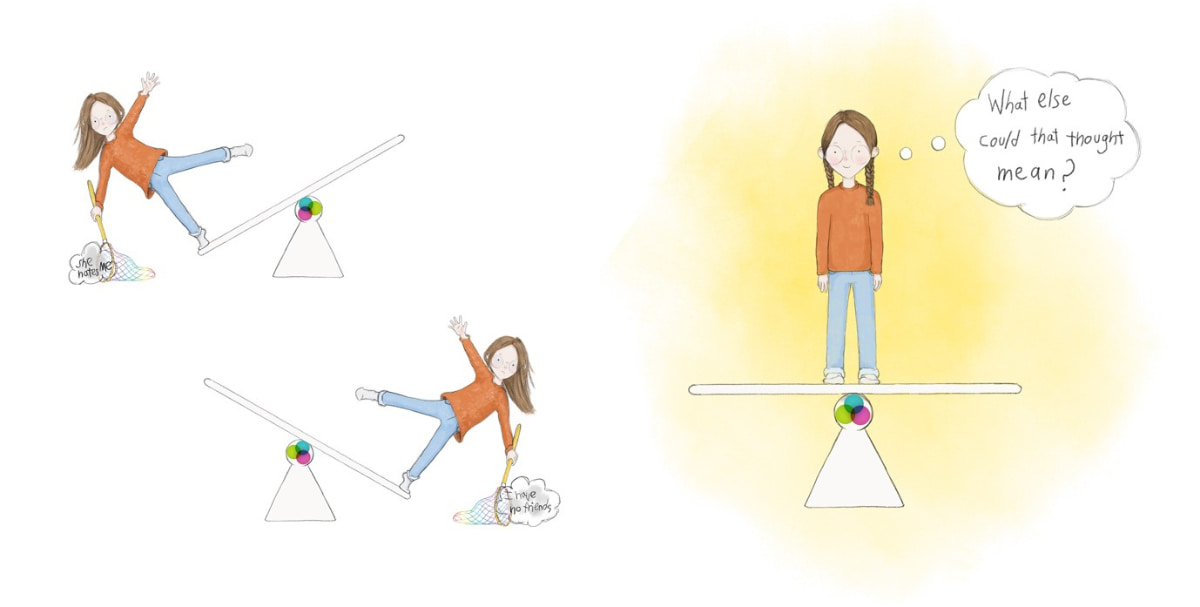I’m thinking a lot these days about the things that children and teens tell us adults and how easy it is to advise or correct them from the adult world-view, rather than guide inner growth.
You may hear phrases like “I can’t” or “I’m stupid” and immediately, rush to correct; “yes you can” or “no, you’re not stupid”…
Imprinting a young brain with the adult world-view can cause confusion if the external voice contradicts their internal voice. That forces a decision about who the young mind should listen to and steals their opportunity to learn the cause-and-effect patterns of self-responsibility that build self-esteem.
Of course, influence or compliance has its place, but it is growth limiting.
Insisting that children adopt adult-only rules for living, means they either ‘rinse and repeat’ the patterns of the past, or they reject them in polarity. Both strategies are mentally restrictive and emotionally sticky.
We must do better for our young people, than require them to do things our way.
Like giving them opportunities to explore other perspectives, figure internal stuff out, and learn to adjust their responses each time they get something right, or wrong. But let this be based in reality.
So your child comes home and says
“Mary was mean to me…” What do you say?
“That bitch Mary really has in for you …”
“I’ll call her mother …”
“I’ll speak to the teacher …”
“You must have done something to upset her …”
Or:
“What did you see/hear that you felt was mean?”
“What was happening just before you felt upset?”
“Do you think something specific upset her?”
“What upset you about her behaviour?”
These responses are not a prescription by the way, they simply highlight the difference between training closed thinking and open (thrive) thinking.
This month’s tip for supporting resilience in children and teens, is to get curious about the unique reality of a young mind. Don’t fear a reality that doesn’t mirror yours, don’t challenge it because you judge it wrong according to the way you were indoctrinated. Don’t tell them they are wrong (that sets up messy thinking further downstream). Don’t ask them to justify their beliefs, that sets up stress in everyone.
Be part of a revolution that helps young minds expand into new perspectives and figure personal solutions. Build self-responsibility, crucial for a healthier society where people are not easily offended or expect the world to revolve around them.
Top Tip: Don’t Tell – Ask
When you hear “I can’t”
Try these questions:
“You can’t?”
Reflect the precise words in parrot fashion.
“Oh tell me more …”
Enable them to expand their own thinking rather than justify their ideas. Sometimes just voicing an opinion with an outside voice, helps it to make more sense.
“Is that because you don’t want to, or because you don’t know how to?”
Guide them towards facts that support action.
“If you don’t want to, then what is it that you would prefer to do instead?”
Let the negative emotion transfer to a thrive energy. People see clearer and make better decisions in thrive mode.
“Is this something that you have to do and therefore figure a way to do it more easily?”
Presuppose the capability was the issue.
“How would you like me to help you?”
Teach them it’s OK to ask for help and that collaboration is beneficial.
Help young people discover their unique aspects of their happy brains. Don’t just give them yours.
Illustration from Sal Undoes Thinking Traps: https://thehappybrainco.com/product/sal-undoes-thinking-traps/


